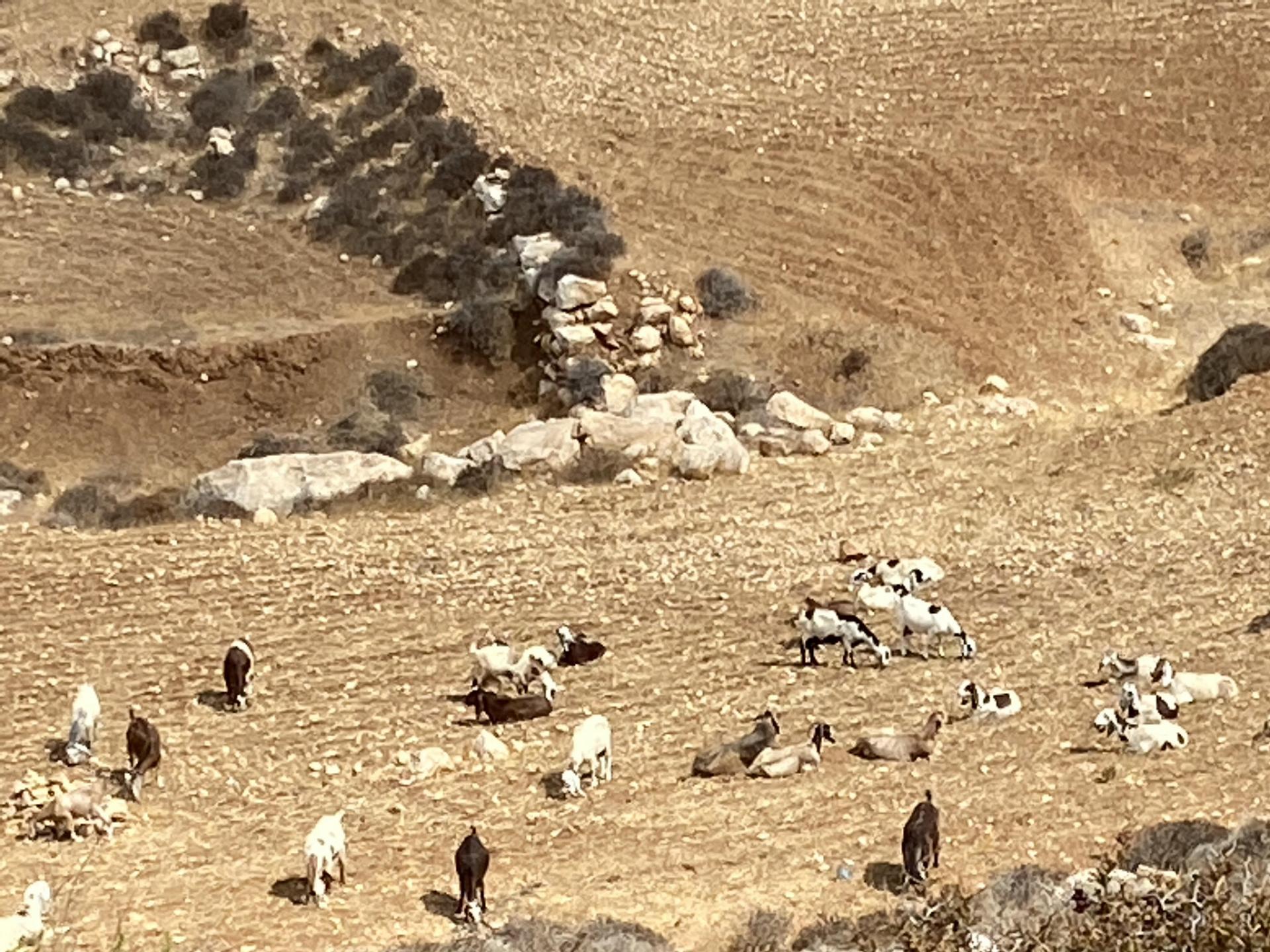Sansana (Meitar Crossing), South Hebron Hills
Meitar checkpoint - The parking lots are packed to capacity, a little encouraging to think that there is still a demand for Palestinian workers within the state. Also in the breach in the fence, the activity of workers and women who crossed the fence was evident.
We were driving on Route 317 so as to bring a large amount of clothing to Abu Safi.
He was not at home but his wife and three of the girls greeted us happily and according to tradition. It's amazing to see the organization of the house - since March, the kitchen in the cave has been equipped with a "tool cabinet", a gas hob and several other items, and the walls have been covered with new cheerful paintings by Rania.
Abu Safi's wife said that the day before, representatives of the settlers, including Kaplan, who live at the top of the mountain in front of them, had approached them. She claimed that they "came in well" meaning the landlord gave them permission to enter and move around. They seem to have come to assess whether they should take over the area.
We returned to the main road and below the Abigail outpost, we saw at the bottom of the wadi Abu Safi with his flock. He explained that the wadi and its two banks have been areas of his family for generations, and that the outpost has bitten into these areas. In 1983 he built a cistern and ditches at the bottom of the wadi to irrigate the flock he brings to the area to eat the wheat extract. This year the wheat did not germinate and the flock ate thorns and thistles.
While we were talking to Abu Safi a military jeep arrived and another jeep as escort, apparently called by the settlers of the outpost. We were interrogated for our actions, and the army did not move from there until we decided to leave and drove away. Back on the same route to Be'er Sheva.
We feel sadness at the end of summer, the herds the fields and also the people , all of whom are thirsty for water and there is only water for the settlers.

